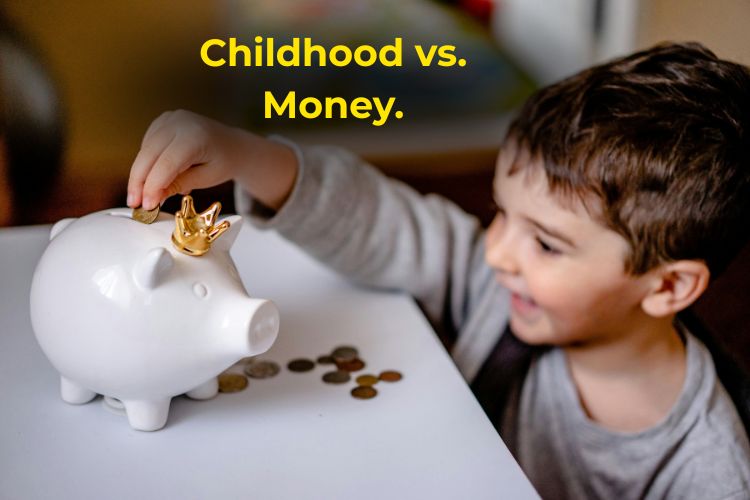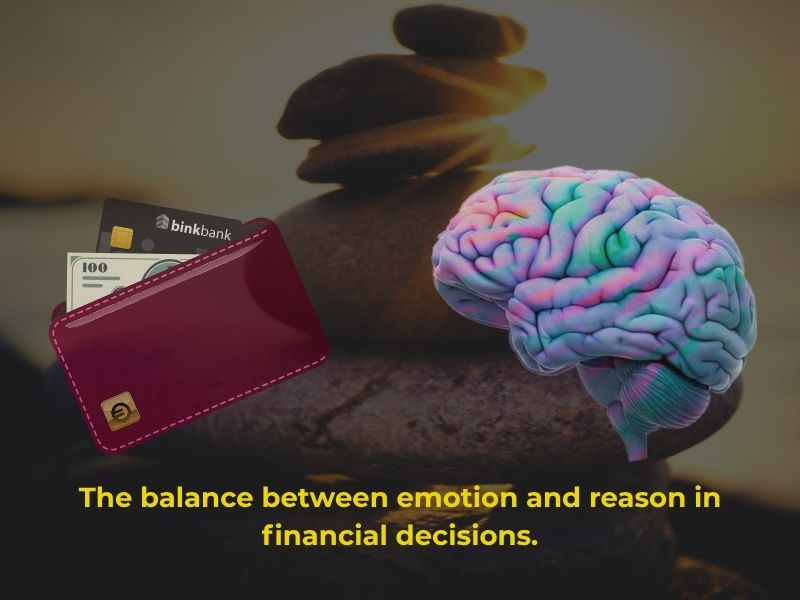Money is often seen as nothing more than numbers — save more, spend less, and invest wisely. While the math is important, the psychology of money plays an even bigger role in shaping your financial future. Every decision about saving, spending, or investing is influenced by emotions, habits, and beliefs.
This explains why two people with the same income can end up in very different situations: one builds long-term wealth, while the other lives paycheck to paycheck. The difference lies in mindset, discipline, and emotional control.
By understanding the psychology of money, you can learn to make better decisions, avoid common pitfalls, and create a healthy relationship with your finances that leads to real freedom.
Why the Psychology of Money Matters
Money is not only a tool of exchange; it carries deep emotional meaning. It can symbolize:
- Security: Having enough to feel safe
- Status: Comparing yourself to others
- Freedom: Being able to choose your lifestyle
- Fear: Worrying about debt or financial failure
- Self-worth: Measuring success by money
Because of these layers, money decisions are rarely logical. Instead, they’re shaped by experiences, culture, family, and even trauma.
Imagine two coworkers earning the same salary: one saves 20% consistently, while the other spends everything. Their financial outcomes will look nothing alike in 10 years — not because of income, but because of mindset.
The Most Common Emotional Money Traps
Even financially educated people fall into emotional traps. Let’s break them down. The Psychology of Money.
1. Fear and Avoidance
Some avoid checking their bank accounts or opening bills out of fear. Over time this leads to:
- Missed payments
- Damaged credit scores
- High financial stress
Solution: Create a weekly routine to review accounts. Pair it with something positive — like coffee or music — to reduce stress.
2. Impulse Spending for Emotional Relief
Stress, boredom, or loneliness often trigger unnecessary spending. That quick purchase may feel rewarding, but guilt follows later.
Solution: Identify your emotional triggers. Instead of shopping, walk, meditate, or connect with a friend.
3. Lifestyle Creep
When income rises, expenses often rise too. Suddenly, vacations, cars, or gadgets “feel deserved.”
Solution: Automate savings before lifestyle upgrades. Decide in advance how much of a raise will go toward investing.
4. Scarcity Mindset
Living with the belief that “there’s never enough” creates constant stress, even if you’re financially stable.
Solution: Practice gratitude journaling. Review financial progress monthly to see growth and abundance instead of lack.
5. Overconfidence and Risk-Taking
Chasing “big wins” can lead to losses. Day trading, speculation, or crypto gambling often backfire.
Solution: Stick to a diversified, long-term plan. Use investments that match your risk tolerance and goals.

How Childhood Shapes the Psychology of Money
Your money mindset often forms in childhood. Reflect on these questions:
- Did your parents argue about money?
- Was money seen as scarce or abundant?
- Were you taught to save, spend, or avoid money conversations?
These early lessons impact adult behavior:
- Savers vs. spenders
- Generous vs. frugal habits
- Fearful vs. confident decision-making
By recognizing inherited patterns, you can rewrite your money story and adopt healthier behaviors.
Financial Behaviors That Lead to Long-Term Success
The psychology of money is not just about avoiding traps — it’s about building consistent habits.
1. Mindful Spending
The Psychology of Money. Before purchasing, ask:
- Do I truly need this?
- Will it matter in six months?
- Does this align with my values?
Mindful spending creates freedom because every dollar has purpose.
2. Automatic Habits
Remove emotions by automating:
- Savings transfers
- Retirement contributions
- Debt payments
Automation ensures progress without constant decision-making.
3. Goal Clarity
People who define goals stay motivated. Write down:
- Your financial vision
- The “why” behind each goal
- A realistic timeline
Example: Instead of saying, “I want to save more,” set a SMART goal: “I will save $300 per month for the next 12 months to build a $3,600 emergency fund.”
4. Learning From Mistakes
Everyone makes financial mistakes. The key is to learn from them instead of hiding them.
Ask:
- What triggered the decision?
- What can I change next time?
This approach turns setbacks into growth opportunities.
The Link Between Money and Mental Health
The psychology of money is deeply tied to mental health.
- Debt stress can lead to anxiety and insomnia.
- Overspending often stems from loneliness or stress.
- Financial avoidance can cause shame and depression.
Building financial wellness is not only about numbers — it’s about emotional stability and confidence.
See also: How to Align Your Spending Habits and Personal Values.
Practical Strategies to Master the Psychology of Money
Here are science-backed ways to strengthen your money mindset:
- Track your spending: Awareness reduces emotional overspending.
- Use cash for impulse-prone categories: Physical money feels more “real.”
- Delay purchases: Wait 24 hours before buying non-essentials.
- Automate savings: Treat it as a non-negotiable bill.
- Visualize success: Picture how being debt-free or financially secure will feel.
- Surround yourself wisely: Spend time with people who encourage smart money habits.
When to Seek Professional Help
Sometimes emotions block progress no matter what you try. Consider professional support if you experience:
The Psychology of Money.
- Constant money anxiety
- Conflict with your partner about finances
- Difficulty achieving goals
Options include:
- Financial therapists (address emotional money blocks)
- Money coaches (provide accountability and guidance)
- Fee-only financial planners (offer professional strategies without commission bias)
Case Studies: The Psychology of Money in Action
- Case 1: The Avoider
Sarah ignored her credit card bills for months due to fear. After seeking help, she automated payments and reduced her anxiety dramatically. - Case 2: The Impulse Spender
James spent heavily on shopping to cope with stress. By replacing shopping with exercise and using budgeting apps, he regained control. - Case 3: The Overconfident Investor
Mike believed he could beat the market with day trading. After losses, he switched to index funds and a long-term plan, leading to consistent growth.
These stories show how mindset shifts transform financial outcomes.
Final Thoughts: Money Is More Emotional Than Mathematical
The psychology of money proves that wealth isn’t just about numbers. Your beliefs, emotions, and habits play a bigger role than your salary or investment strategy.
By recognizing emotional patterns, avoiding traps, and building healthy habits, you can align your money decisions with your values and goals.
Master your emotions, and you master your money. That’s how you create true wealth — not only in your bank account but in your life.
See also: How to Build and Maintain Good Financial Habits.
FAQ – The Psychology of Money: How Emotions Impact Your Financial Decisions.
How do emotions affect financial decisions?
Emotions like fear, stress, and overconfidence can heavily influence how we spend, save, or invest. These feelings often override logic, leading to impulsive purchases, avoidance, or risky behavior.
What are common emotional traps in personal finance?
Some common traps include fear of checking finances, emotional spending, lifestyle creep, scarcity mindset, and overconfidence. These habits can quietly sabotage long-term financial health.
How does childhood influence your money mindset?
Your early experiences with money — whether you grew up with scarcity, abundance, or financial stress — often shape your adult beliefs and behaviors, such as whether you’re a saver or a spender.
What are healthy financial habits to develop?
Successful habits include mindful spending, automating savings and bills, setting clear financial goals, and reflecting on financial mistakes with curiosity rather than shame.
When should you seek professional help for money issues?
If money causes constant stress, relationship conflict, or stalls your progress, working with a financial therapist, coach, or planner can help address both the emotional and practical sides of money.

